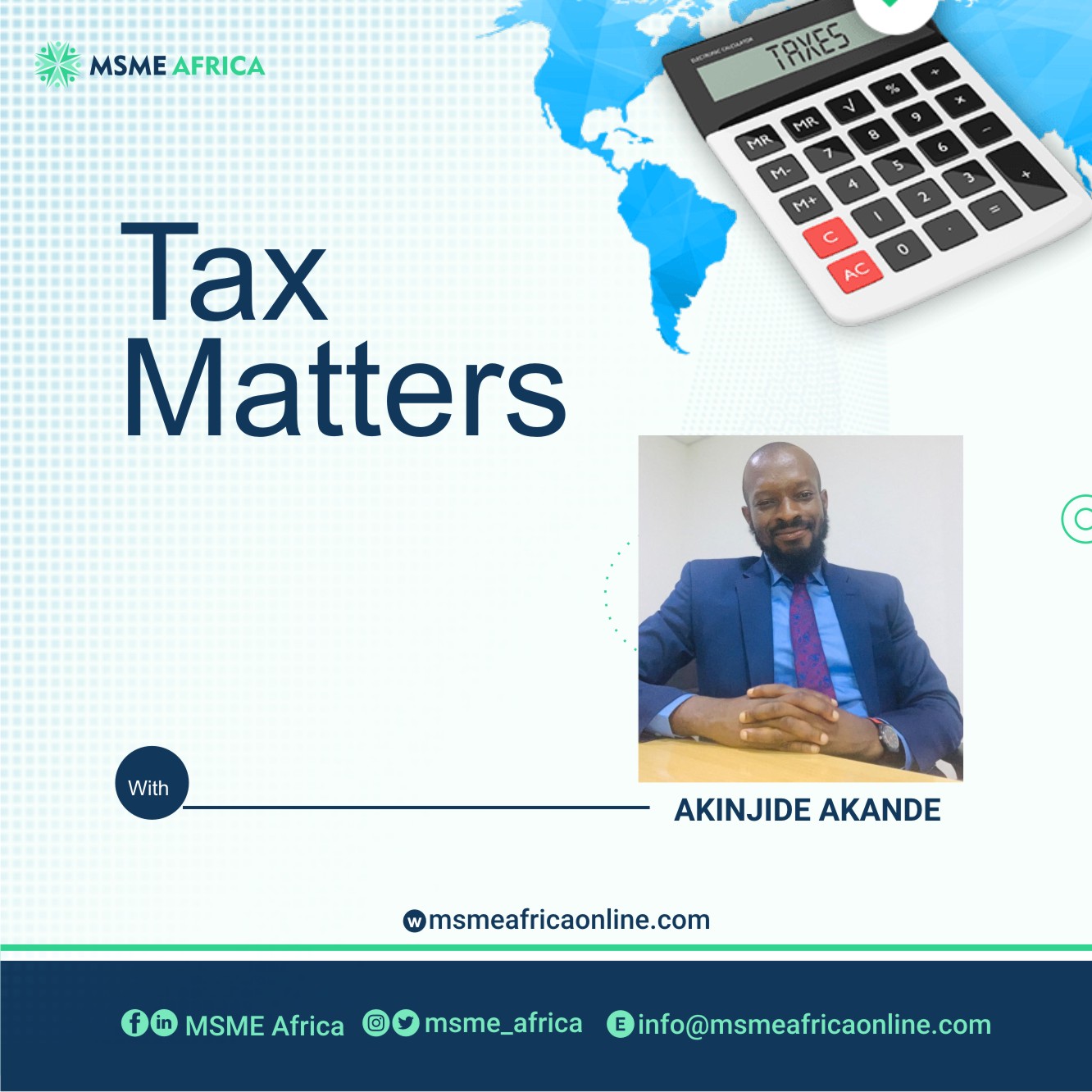I am taking a pause from our subject of discussion in prior weeks and addressing a nagging issue lots of SMEs face, based on requests from a number of associates.
This week, we will address existing businesses whose management did not have the full grasp or did not put the appropriate mechanism in place when they were starting business. It also speaks to you who registered a business a while ago but never really commenced activities.
I will speak briefly on the major tax obligations required of a Nigerian business on a general note.
A typical Nigerian business has the following tax obligations: Companies Income Tax (CIT), Withholding Tax(WHT), Value Added Tax(VAT), Capital Gains Tax and Pay-As-You-Earn (PAYE) tax. Please note that the occurrence of most of these tax obligations depends on different situations and triggers. For instance, a business without salaried employees, need not register for PAYE purposes. Also, another example is a business that has made less than N25M Turnover in a particular financial year – The newly-introduced Finance Act 2019 exempts such business from paying and filing VAT returns.
If you have had a registered outfit for a while, but did not register with the FIRS for VAT purposes, it is likely you have a VAT exposure in respect to failure to register, late returns filing liabilities and/or non-remittance of VAT. Prior to the introduction of the Finance Act, every business entity is required to register for VAT purposes, file monthly VAT returns (even if it had no VATable supplies or charged any VAT) and remit the VAT charged to its customers/clients.
Also, if you have been paying your staff and not deducting PAYE from their salaries or you have been paying your vendors and other suppliers without deducting Withholding Tax from the fees paid to them, you are likely to have a WHT liability, payable to either the FIRS or the state IRS. This liability is hinged on, the non-deduction of WHT as specified by the relevant tax laws. For PAYE, you are open to tax liabilities for employment tax not deducted.
A limited liability company will also have CIT exposures if the relevant CIT returns are not filed, or CIT payment is not made to the FIRS within the timeline specified by the Companies Income Tax Act.
What to do!
Granted the exposure (and possible liability) exists already, because of the failure to do the right thing, but then, the time to remedy that is now – As said in previous write-ups, when there is a tax liability for a business, Interests acrrue on the tax liability with each passing day.
My advice is to get a qualified tax consultant look into your records and conduct a self-examination within the applicable tax laws as it relates to the named instances and other considerations, and prepare a letter, backed by a computation of the areas of laxity and file these returns, register for the appropriate taxes and make payments of the determined liability. In my experience, if a taxpayer willingly comes forward to declare a liability, the tax authority MAY use its discretion to waive the consequent penalties and interests. This will also fast-track the processing of a TCC with the relevant tax office.
Please feel free to contact the undersigned if you have questions and we can discuss and exchange ideas based on the peculiarities of your particular situation.
We will talk and compare notes as time progresses.
Akinjide Akande B. Eng. ACA, ACTI is a seasoned tax professional with over 12 years of experience in Tax Compliance, Advisory, Accounting and Automation. He started his career with one of the top 4 accounting firms before proceeding to a leading Tax professional services firm where he gathered knowledge and hands-on experience in Nigerian taxes in the areas of accounting, advisory, compliance, automation, dispute resolution and adjudication. He has served as a tax consultant in various industries including the financial services, manufacturing, IT and FMCG sectors. He has a good grasp of the relevant tax statutes and the practice of tax in Nigeria. He currently works as the tax manager for a leading bank in Nigeria.He can be contacted via email : akinjidayakanday@gmail.com










